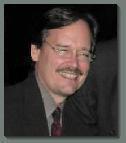 |
|
American composer William Hawley's music has been heard in New York, London, Paris, Tokyo, Berlin, Cologne, Salzburg, Darmstadt, Munich, the Netherlands, Singapore, Chicago, San Francisco, Los Angeles, Seattle, Minneapolis, and other cities in the Americas, Europe, and Asia. A longtime Manhattanite, he now makes his home on the coast of Maine with his wife, Jyoti. William Palmer Hawley was born in 1950 in Bronxville, New York into the family of an English professor and poet. He was drawn early to the arts, and, following the path of music, found his métier as a composer during his student years at the Ithaca College School of Music and the California Institute of the Arts (BFA, 1974; MFA, 1976). Although his teachers and mentors were mainly of the avant-garde (Alan Chaplin, Morton Subotnick, Ingram Marshall, Harold Budd, James Tenney, Earle Brown, Miriam Gideon, Morton Feldman), upon entering the professional world he felt compelled to reconsider the fundamental cultural rôle of music composition, with a view towards reintegrating the emotional and spiritual elements of pre-20th Century Western classical music with the technical and conceptual acquisitions of Modernism, as well as the then-newly-rediscovered influences of Indian and East Asian classical forms. Beginning his creative life primarily as an instrumental composer, he gradually found his work assuming a deeper expression in the realm of vocal music, unaccompanied as well as with instruments in chamber and orchestral combinations, which, through the illustration and illumination of poetry in sound, has through the ages borne the ability to elevate and enlighten the human mind and spirit. |
||
2025-26 |
Current and recent projects include the publication of his Nocturne for Soprano Solo, Chorus, and Orchestra; his St. Matthew Passion, Part I for Soloists, Choir, Chorus, and Orchestra with Organ; many new songs and vocal ensembles setting the poetry of Edna St. Vincent Millay, Robert Herrick, Dante Alighieri, Christina Rossetti, Thomas Carew, Patti Smith, and Emily Dickinson; a setting of John Keats's Ode on a Grecian Urn, for Solo Soprano, Double Chorus, and Orchestra; solo songs and duets on poetry by P. B. Shelley, Pierre de Ronsard, and Miguel de Unamuno; "This is the Garden" for unaccompanied choir, commissioned by the SYC
Ensemble Singers of Singapore and given its World Premiere by them at The John F. Kennedy Center for The Performing Arts in Washington, D.C.; completion of his St. John Passion and Ode to Psyche; the release of the CD/mp3 "Shall We Gather at the River", Choral Music of William Hawley, an American Prize finalist, recorded by Seattle's Choral Arts under Robert Bode; the World Premiere performance of his Mozart Lieder (Singer Pur, Große Aula der Universität, Salzburg, Austria,
Salzburger Bachgesellschaft); the release of the Grammy Award Nominated Hyperion Records CD,"Beyond All Mortal Dreams", by The Choir of Trinity College, Cambridge, Stephen Layton, conductor, which includes his Two Motets; the North American Premiere performance of Tota Pulchra es Maria for SSA Choir and Organ, performed by The Dessoff Choirs, Christopher Shepard conducting, in the Church of St. Paul the Apostle in Manhattan; the World Premieres of O Remember, for Choir, Flute, Viola, and Harp, in all-Hawley concerts by Seattle's Choral Arts, and Life of Life, for SSA Chorus, Two Horns, and Harp), performed in Boston by the Handel and Haydn Society's Young Women's Chorus, Lisa Graham, conductor; performances of Alleluia, Dies Sanctificatus (SATB, Harp), performed by Cerddorion in Manhattan's St. Ignatius of Antioch Episcopal Church, James John, conductor; Canción al Sueño (an a cappella setting of verse by the 16th Century Sevillian poet Fernando de Herrera) commissioned by Coro Hodeiertz of Tolosa, Spain; Mass ("Our Lady of Loretto"), for Choir and Orchestra, commissioned
by the South Bend Chamber Singers, Nancy Menk, Founding Music Director; Three American Folk Hymns, for Choir and String Orchestra, commissioned
by the Vocal Arts Ensemble of Cincinnati conducted by Earl Rivers; his Requiem, commissioned
by San Francisco's St. Dominic's
Catholic Church and premiered by the St. Dominic's
Choir, Orchestra, and Organ, Conducted by
Simon Berry; the double World Premiere of "Spring", a joint commission by The Ames Chamber Artists and The White Heron Chorale; the World Premiere Recordings of Alma Redemptoris Mater and Regina Caeli (Saint
Mary's College Women's Choir); Der Abend und Abschied (Schiller
settings) and Drei
Momente (Rilke), performed by the German
vocal ensemble Singer
Pur on their European tour, and at the Ludwigsburger
Schlossfestspiele as part of the summer's Schillerjahr
celebrations; Flos ut Rosa Floruit, premiered at the Florilège
Vocal de Tours by the University of Utah Singers, Brady R. Allred, conductor
(winning the prize for a First Production Work); Tre
Rime di Tasso, commissioned
and premiered by Chanticleer in
San Francisco and in the Temple of Dendur in New York's Metropolitan
Museum, as well as on European tour; A
Song for St. Cecilia's
Day, given its Royal Academy premiere
in London by the New
London Singers, Ivor Setterfield, conductor; his Miserere, commissioned
and given its World Premiere by the Alexandria Choral Society in the
Kennedy Center Terrace Theater, Washington DC; Four Reveries,
commissioned, premiered, and performed on tour in Europe by the Vocal
Arts Ensemble of Cincinnati, Earl Rivers, director, with
further performances by VocalEssence,
Philip Brunelle, conductor, in Minneapolis, as well as its Seattle Premiere
by The
Esoterics; Ave
Regina Cælorum and Salve
Regina, commissioned
and premiered by the Saint
Mary's College Women's Choir,
Nancy Menk, conductor; a new Magnificat for
SSAA Choir and Brass Ensemble commissioned by the Wellesley
College Choir, with premiere performance
conducted by Lisa Graham at Christmas Vespers in Wellesley's Houghton
Chapel; and Seattle,
a setting of Chief Seattle's 1854 Treaty Oration,
for four vocal soloists, women's choir, chorus, and orchestra,
premiered in Seattle's Benaroya Hall by the Seattle
Choral Company,
Fred Coleman, conductor. |
|
|
||